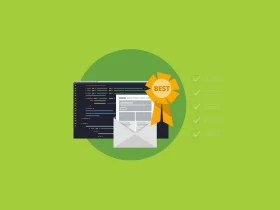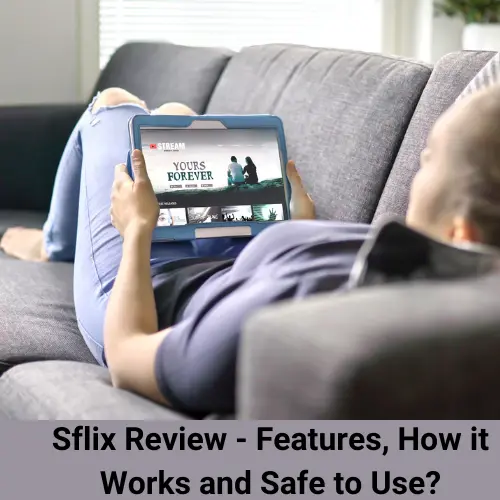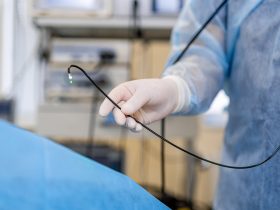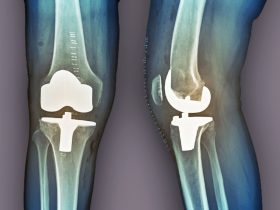Mastering the Medical Jargon: Essential Communication Skills
The Art of Patient Interaction: Building Trust and Rapport
Effective communication is paramount in the healthcare environment, especially for medical assistants who serve as the bridge between patients and medical professionals. Among the essential skills for success as a medical assistant is the ability to build trust and rapport with patients. This goes beyond merely exchanging pleasantries; it involves active listening and demonstrating genuine empathy. A patient who feels heard and understood is more likely to be compliant with their treatment plans and report concerns candidly. Expanding one’s emotional vocabulary becomes crucial knowing how to express reassurance, compassion, and professionalism can have a lasting impact on patient experiences.
Building rapport also entails tailoring your communication style to meet individual patient needs. For instance, considering the cultural background and personal experiences of patients can alter how health information is conveyed. Medical assistants should take time to practice reflective listening techniques, which can help patients feel valued. Phrases such as, “What I’m hearing is…,” can clarify understanding and reinforce patient comfort. Engaging in non-verbal cues, such as maintaining eye contact and open body language, enhances the interaction and fosters a supportive atmosphere. Ultimately, creating a safe space for patients to discuss their health concerns is an art form that every medical assistant should master.
Collaborating with Healthcare Professionals: Teamwork that Transforms
Collaboration in healthcare is not merely advantageous; it is essential for optimal patient outcomes. Medical assistants must work closely with various healthcare professionals, including physicians, nurses, and pharmacists, to ensure seamless care delivery. This involves understanding each professional’s role within the healthcare team and respecting their expertise. Effective teamwork hinges on clear communication. Medical assistants should not only relay patient information but also actively participate in discussions about treatment plans and interventions. Cultivating an environment where open dialogue is encouraged can lead to greater innovations and improvements in patient care.
Another aspect of good collaboration is conflict resolution. Occasionally, disagreements or misunderstandings arise within a healthcare team. Learning conflict resolution strategies, such as addressing issues directly while maintaining professionalism, is critical. It’s important to approach conflicts with a solution-oriented mindset rather than allowing them to fester, as this can impact overall team performance and patient care adversely. Developing strong interpersonal skills will empower medical assistants to become effective advocates for their patients and to contribute positively to the healthcare team dynamic.
Effective Documentation: Crafting Clear and Concise Records
Documentation is a critical function for medical assistants, serving both clinical and legal purposes. Accurate and clear record-keeping ensures continuity of care and protects patient rights. Using standardized formats ensures that vital information is organized efficiently and is easily accessible to those who need it. Medical assistants must be proficient in the intricate details involved in documentation, including proper terminology, abbreviations, and coding practices. Moreover, understanding the legal implications of documentation is crucial; poorly recorded information can lead to misunderstandings or even legal issues in healthcare.
Along with technical skills, medical assistants should be adept at summarizing patient encounters effectively. This includes writing coherent summaries that capture the essence of patient interactions while eliminating unnecessary jargon. The ability to note and highlight changes in a patient’s health over time is fundamental and requires habitual attention to detail. Familiarity with Electronic Health Records (EHRs), which are becoming the industry standard, is also increasingly important. Mastering the capabilities of these digital systems not only aids in compliance but also optimizes patient safety and care quality.
Technical Proficiency: Navigating the Tools of the Trade
Mastering Medical Instruments: From Stethoscopes to Sphygmomanometers
A medical assistant’s technical proficiency is demonstrated through their mastery of various medical instruments. Proficiency is not just about handling tools; it requires an understanding of how and why each tool is used. Medical assistants are often responsible for performing vital signs, which necessitate knowledge of instruments like sphygmomanometers and stethoscopes. Mastery goes beyond the mechanical usage; it involves an understanding of physiological principles and what the readings signify concerning patient health. Knowing how to accurately measure blood pressure, respiratory rates, and temperatures can aid in assessing patient conditions, reflecting the skill and expertise of a medical assistant.
Furthermore, beyond basic vital signs, medical assistants may be required to assist with minor surgical procedures or diagnostic tests, which involve additional specialized equipment. For example, familiarity with a variety of diagnostic instruments from otoscopes to glucometers can enhance their capacity to assist healthcare providers during procedures, thus improving efficiency and patient safety. Proficiency in these tools not only supports better patient outcomes but also builds professional credibility within the healthcare team.
Diving into Electronic Health Records: The Digital Frontier of Patient Management
The landscape of healthcare is increasingly digital, making it imperative for medical assistants to have a solid grasp of Electronic Health Records (EHR) systems. Understanding how to navigate these platforms efficiently enables medical assistants to input, retrieve, and manage patient data proficiently. Given that these systems are designed to enhance patient care coordination and communicate critical health information across different providers, medical assistants play a key role in ensuring the accuracy and completeness of these records.
Moreover, with the shift to telehealth services, being tech-savvy is more essential than ever. Medical assistants must adapt to new tools and procedures for online consultations. This may include managing virtual waiting rooms, ensuring proper documentation for telemedicine appointments, and assisting patients with technology issues during their consultations. Keeping abreast of ongoing updates and improvements in EHR technology will empower medical assistants to maximize the application of these digital tools in patient care.
Understanding Diagnostic Equipment: Keeping Up with Technological Advances
As healthcare technology evolves, medical assistants must remain informed about the latest diagnostic equipment and advancements. A thorough understanding of tools such as X-ray machines, ultrasound devices, and diagnostic imaging technologies is essential. Being knowledgeable about these advancements allows medical assistants to better support healthcare teams in patient diagnostics, education, and treatment strategies.
Competence in using diagnostic equipment also requires ongoing education and training. Medical assistants should actively seek training opportunities, certifications, and workshops that focus on emerging technologies in the medical field. This not only enhances their skill set but ultimately contributes to superior patient care. As new technologies enter the market, having a proactive approach to learning will keep medical assistants ahead of the curve and prepared for the evolving demands of healthcare.
Clinical Knowledge: The Backbone of Patient Care
Understanding Anatomy and Physiology: The Language of the Body
An in-depth knowledge of anatomy and physiology is foundational for any medical assistant. Understanding the structure and function of the human body is crucial when providing patient care. This knowledge empowers medical assistants to comprehend health conditions and effectively communicate with patients and other healthcare professionals. A solid grounding in these subjects fosters confidence in interpreting and discussing patient symptoms, which is vital for successful outcomes.
Additionally, this knowledge aids medical assistants in understanding treatment choices, potential side effects, and the rationale behind specific diagnostic tests or procedures. It also engenders a level of professionalism and authority when interacting with patients, who may have numerous questions regarding their health concerns. Continuous education in anatomy and physiology is essential attending seminars, engaging with interactive learning resources, and even online courses can sharpen this valuable knowledge as the human understanding of health continues to advance.
Knowledge of Medical Procedures: What Every Assistant Should Know
A medical assistant’s role often includes direct involvement in medical procedures, from basic tasks such as administering injections to more complex processes like assisting in surgery. It is paramount for medical assistants to possess thorough knowledge of common medical procedures, their indications, contraindications, and post-procedure care. Having this foundation enables them to assist effectively, prepare patients adequately, and respond to emergencies or complications as they arise.
Moreover, practical experience combined with theoretical knowledge provides a comprehensive skill set. Participating in hands-on training, simulation practices, and internships can greatly enhance proficiency. Medical assistants should not only familiarize themselves with the technical details but also gain an understanding of the broader context, including ethical implications, patient rights, and the latest clinical guidelines. Staying updated through continuing education should be a lifelong endeavor, as methodologies and procedures can evolve rapidly in the medical field.
Staying Current with Medical Trends: Lifelong Learning in Healthcare
Healthcare is an ever-evolving field; therefore, staying current with medical trends is critical for any medical assistant committed to providing the best possible care. Whether it’s new treatment protocols, updates in healthcare laws, or emerging healthcare technologies, continual learning is essential. Engaging with professional organizations, attending conferences, or pursuing further certifications can keep medical assistants informed and relevant in their roles.
Reading medical journals, participating in workshops and seminars, or subscribing to reputable healthcare newsletters can also provide crucial insights into evolving best practices and groundbreaking research. By embracing a philosophy of lifelong learning, medical assistants not only enhance their professional competence but also contribute to their organizations’ success and patient satisfaction. Keeping informed fosters a dynamic healthcare environment that can adapt to changing patient needs more effectively.
Soft Skills that Set You Apart: Emotional Intelligence in Healthcare
Empathy in Action: The Heart of Patient Care
Empathy is often cited as a key component of successful patient care, transcending the clinical aspects of the medical assistant role. It involves the ability to recognize and understand patients’ feelings, needs, and perspectives, thereby enhancing the patient’s overall experience. Empathy enables medical assistants to form deeper connections with patients, which can lead to improved communication, better adherence to treatment plans, and increased patient satisfaction.
Practicing empathy in action might look like taking a moment to listen to a patient’s concerns or fears, validating their emotions, and providing reassurance in moments of uncertainty. Compassionate responses can significantly impact a patient’s willingness to share vital health information and engage fully in their care. Moreover, creating a culture of empathy within the healthcare workplace can also positively affect team dynamics, subsequently improving patient outcomes. Skill-building workshops focused on emotional intelligence can enhance this particular soft skill and enrich interactions with both patients and colleagues.
Time Management: Juggling Responsibilities While Maintaining Quality Care
Time management skills are essential for a medical assistant tasked with balancing a wide range of clinical and administrative duties. Given the often high-pressure environment of healthcare, being proficient in prioritizing tasks and managing time efficiently ensures patient needs are met without compromising the quality of care. Effective time management involves setting clear daily goals, recognizing critical tasks, and eliminating potential distractions.
Developing a systematic approach to daily responsibilities whether through the use of technology tools like task management apps or traditional calendars can significantly enhance productivity. Time management also means understanding the flow of patient care and adapting to changes in demand. It is important for medical assistants to remain flexible, as unexpected situations will inevitably arise. Techniques such as the Pomodoro Technique (working in focused bursts followed by short breaks) can responsibly approach workload management and support mental acuity throughout the day.
Stress Management Techniques: Thriving in a Fast-Paced Environment
Working in healthcare can be both rewarding and stressful. Therefore, medical assistants must develop effective stress management strategies to thrive in their roles. Recognizing the signs of stress and implementing coping strategies is essential for sustaining personal well-being and quality patient care. Techniques may include mindfulness practices, deep-breathing exercises, or physical activities like yoga that promote relaxation and mental clarity.
Maintaining a healthy work-life balance is equally important. Medical assistants should strive to create boundaries between work and personal life to recharge mentally and physically. Engaging in hobbies, social activities, or simply spending time with loved ones can greatly alleviate workplace stress. Additionally, fostering supportive relationships with colleagues can create a camaraderie that offers emotional support during difficult times. As healthcare environments continue to evolve, equipping oneself with effective stress management techniques will serve to fortify resilience against the unique challenges faced by medical assistants.







































Leave a Reply